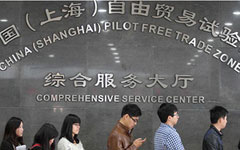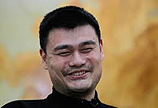Shanghai FTZ ready to spread its model nationwide
By He Wei in Shanghai (China Daily) Updated: 2014-05-27 07:12In February, the People's Bank of China fully liberalized interest rates on foreign-currency deposits in the zone, laying the foundation for the deepening of interest-rate liberalization nationwide.
The central bank also clarified rules for companies in the FTZ to borrow yuan from offshore. Third-party payment firms have been allowed to settle payment in yuan for transactions between foreign e-commerce websites and domestic firms and individuals.
 |
 |
Challenges remain in the implementation and integration of rules, including the coordination between policy makers and financial institutions.
By the end of April, over 17,000 enterprises, including financial services, international trade and garment companies, have registered in the zone.
People have been mulling major changes to happen in the zone, whose progress is largely seen as "quiet" since its grand opening last year, according to a McKinsey & Co report in January.
The only change so far appears to be that companies allowed to invest in the zone will not have to go through an approval process, which is quite "ambiguous", said Gordon Orr, the consultancy's Asia chairman and author of the report.
It is therefore important to take substantial steps by revising the laws and regulations to pursue bolder liberalization in the FTZ, said Graham Mather, chairman of World Free Zone Convention, a London-based NGO.
"The FTZ in Dubai would not have been a success if it strictly abides by the laws of the United Arab Emirates. We need a fast-track, understandable legal regime to be set up," he said.
- COSL's oil exploration enters second phase
- Top executives held on corruption charges
- Shaanxi savors 'Silk Road' potential
- Britain eyes China's green construction market
- China seeks bigger sway in gold trade
- Pillow fight to relieve the stress of mortgage
- China's bank card issuance at 4.39b
- China's logistics growth further slows
















